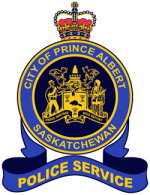The unsung heroes' in most city halls are the tirelessly working people in the City Clerk's department. They spend much of their time helping the public and trying to keep the council members out of jail or other troubles. They just seem to be there' when they are needed, and do a masterful job of organizing well, everything.
Their roles are particularly in focus during election season. Two municipal elections in particular caught the eyes of Canadian civic watchers this October Toronto and London, Ontario.
How the people in the Toronto City Clerk's department pulled off this year's election is miraculous. The intrusion by newly-elected Premier Doug Ford into the process by suddenly cutting Toronto city council in half announced on the last day of nominations and the subsequent legal roller-coaster left the final composition of the council and the establishment of new wards until the absolute last minute.
The overtime, dedication, sleepless nights and damn hard work that it must have taken to put together the election in Canada's largest city is astonishing, but rounds of applause are deserved. And a case of wine.
(All of this being said, the impact of Ford's decision on the lives of many people, including original candidates who changed their lives to run and then either dropped-out or got defeated under the new ward system in incalculable, but that is another story and certainly not part of the Clerk's responsibilities; many observers felt it was just think it very sad...)
In London, the city used a Ranked Ballot for the first time in our nation's history to elect its City Council.
Londoners who experienced the new format seemed fairly blasé, although there was some concern that fear of the new system kept a few from voting. The ballot was easy to use (simply filling-in up to three circles on the ballot for your top three choices for Mayor and Ward Councillor) and while it took fractionally longer than marking the traditional X it was easy to navigate.
The Clerk and her staff were obviously under national scrutiny over this election, and they performed with flawless precision.
The larger questions over the ranked ballot system left many unsatisfied, however.
Voter turnout in 2014 in London was a disappointing 43%; in 2018 it was a lousy 39%.
Getting the final complete results took more than 18 hours. The mayor's race was decided about 2pm the following day after 14 rounds of counting to re-distribute the lowest ranking candidate's second or third choices as selected by their original supporters.
As a result, election night was incredibly boring. And as the results seeped out the next day, there was little public celebration. The local media didn't provide much live coverage on election night.
In fact, some pundits believe the campaign itself was pretty boring as candidates tip-toed around much strong, direct confrontation with rival candidates because they didn't want to lose a possible second or third-choice vote. There were several incidents of incredibly nasty and mainly on-line and social media attacks but these were not attributed to the candidates themselves.
Perhaps most importantly in assessing the process and the results, not one of the 15 seats was changed because of the ranked ballot system. In every case, the mayor and the fourteen council members who were leading after the first ballot were ultimately elected. In other words, the ranked ballot system did not seem to affect the results or change the rankings of candidates.
Exactly what all that means will have to wait for astute analysis and research by well-meaning academics. The initial reaction for most Londoners seems to be a yawn about the change in voting procedures and the results it produced.
The larger point, however, remains that the City Clerk (and staff) in Toronto, London and all other municipalities where elections were being conducted once again acted with skill, knowledge, commitment and rigorous respect for the laws and procedures that protect our democracy.
Looking over Ontario's election experiences, there were some computer blips in about 50 of the province's 444 municipalities (mainly smaller and rural) that caused some extensions in voting or delays in results. More municipalities are using on-line voting, with all of the goods and risks of that process.
After the elections there was the occasional whine from a defeated candidate. There was a nasty letter or two to the editor in some municipalities from curmudgeonly citizens. But once again, and by far most importantly, Canada showed that our local governments run fair, open and honest elections.
That's what City Clerks do.














